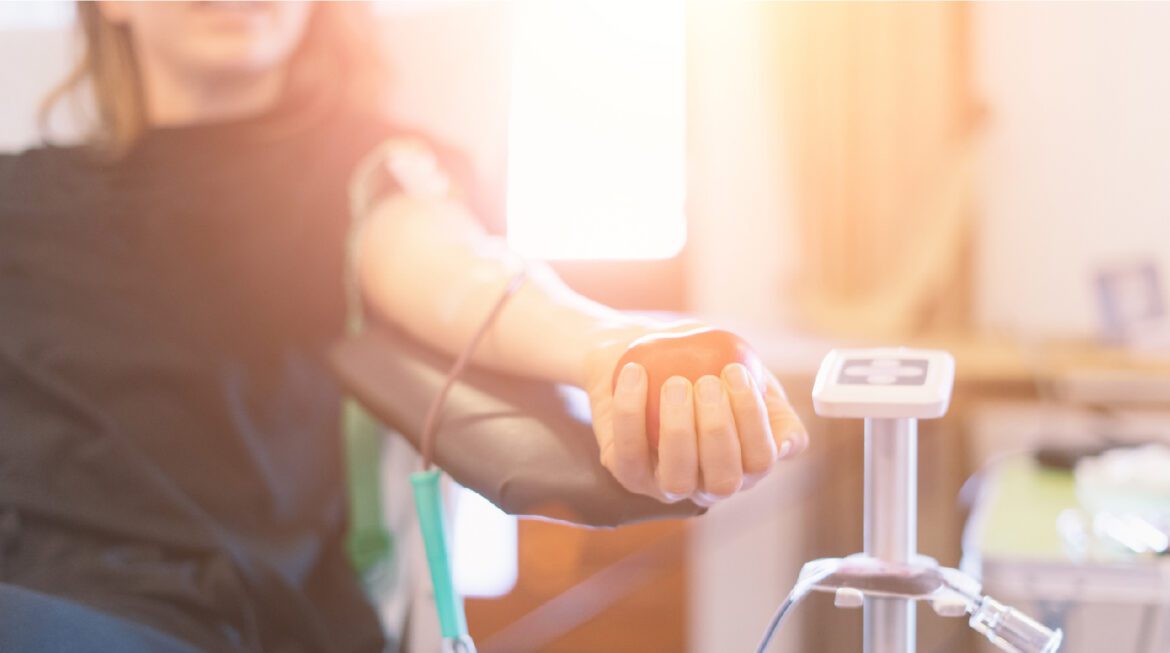When we think of blood, we think of the obvious… ick! Why? Because blood is normally associated with trauma, hospitalization, and injury. But let us talk about blood in a positive, proactive light. Let’s talk about blood donations.
As a child, I would often hear about the importance of donating blood. That was because both my mother and father would discuss our immediate family being O-negative. This blood type constitutes a universal donor classification, meaning our red blood cells can be infused into any other person, regardless of their blood type. With O-negative blood being the highest in demand, interestingly, only 7 percent of the population has it. The need for O-negative blood is significant as it is used in treating emergencies, premature baby blood transfusions, and cancer patients.
For that matter, when my father was ill and needing surgery, my brothers and I were prepared to fly to the Midwest to donate during the controversial era of contracting HIV from blood transfusions. It was, weirdly, a frequent topic of conversation growing up, with my parents consistently instilling the importance in my siblings and I to give blood once we were of the appropriate age.
Fast forward 30 years later. I consistently donate blood (while also recruiting my husband to grasp the same habit). I try to do so every three to four months, though statistically, and clinically, both men and women can donate every 56 days. It normally takes around 30 minutes and is nothing more complicated or painful than a simple needle prick.
During one of my recent appointments, a phlebotomist for One Blood, the operator of our local blood donation center, said, “Giving blood is comparable to having a natural oil change for the body.” Why? After donating, iron levels drop a few points. The donation forces the body to produce “new” blood to replace the “old.”
In all my years of giving blood, I had not heard anyone explain the oil change analogy. I found that fascinating, so I began doing research on how giving blood affects the body clinically, and who should, versus who should not, give the gift of life.
“First, by making blood donation a habit, you are helping ensure a ready blood supply is always available,” said Susan Forbes, senior vice president of corporate communications and public relations at One Blood.
“In addition to helping save the lives of others, donating blood also has health benefits for the donor. Donating regularly can help your blood flow and result in fewer arterial blockages. Studies have also shown men who donate at least three times a year drastically reduce their risk of having a heart attack or stroke.”
Dr. Sumeet Chandra, who specializes in hematology/oncology with Cancer Care Centers of Brevard, in Melbourne, Florida, echoes Forbes’ statement.
“By donating blood products – red cells, platelets, and plasma – you could help someone survive a critical illness. With the country’s blood stockpiles in extreme short supply, I cannot emphasize enough the importance of giving blood on a consistent basis.”
Further, regular blood donations are linked to lower blood pressure, and for those with too much iron in their blood count, donations can help decrease that overage.
On the other side of the donation equation, though, not everyone should donate, depending on disease, illness, or certain medication use.
“People who are anemic due to any cause should not donate as it may exacerbate their anemia. Also, those who have active infections, along with individuals who have traveled within three years to areas which have endemic malaria or the zika virus should not. Furthermore, certain medications may require a waiting period,” Chandra said.
According to Forbes, less than 5 percent of the population in the United States donates blood, with those numbers consistently decreasing. Moreover, securing adequate donations is a constant issue in trying to ensure a ready blood supply for more than 200 hospitals and patients throughout portions of Florida, parts of Georgia, Alabama, South Carolina, and North Carolina, in which One Blood serves.
“Blood donations have become increasingly more challenging since the pandemic. For example, remote work is a reality, and this impacts the participation rate at corporate blood drives. Not as many people in the office also means fewer donors at the company blood drive,” Forbes said.
Think about this. In an instant, any one of us can find ourselves on the receiving end of a blood transfusion. Amazingly, statistics show every two seconds someone is receiving a blood transfusion, with one in three Americans needing the procedure at some point in their life.
The bottom line is, donating blood is not only good for saving lives, but it is also good for you, me, and the thousands of donors who take the time out of their hectic, daily lives to support those individuals whose health is compromised and need this act of kindness the most. Sadly, in our world where there seems to be substitutes for most everything, there is no substitute for blood.
To learn more about why giving blood is so critical, click here. For more information on One Blood, go to www.oneblood.org.

